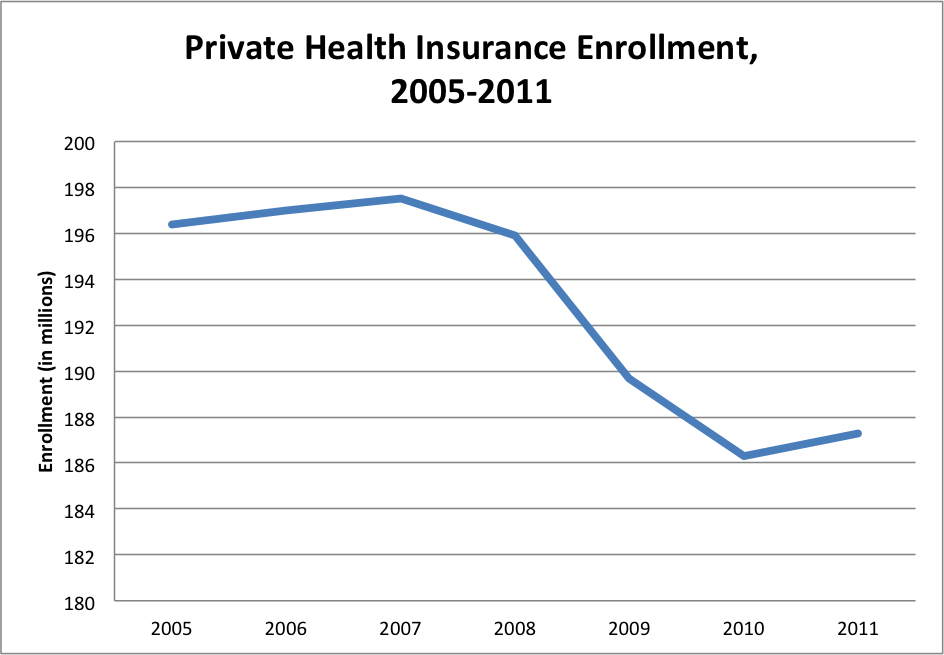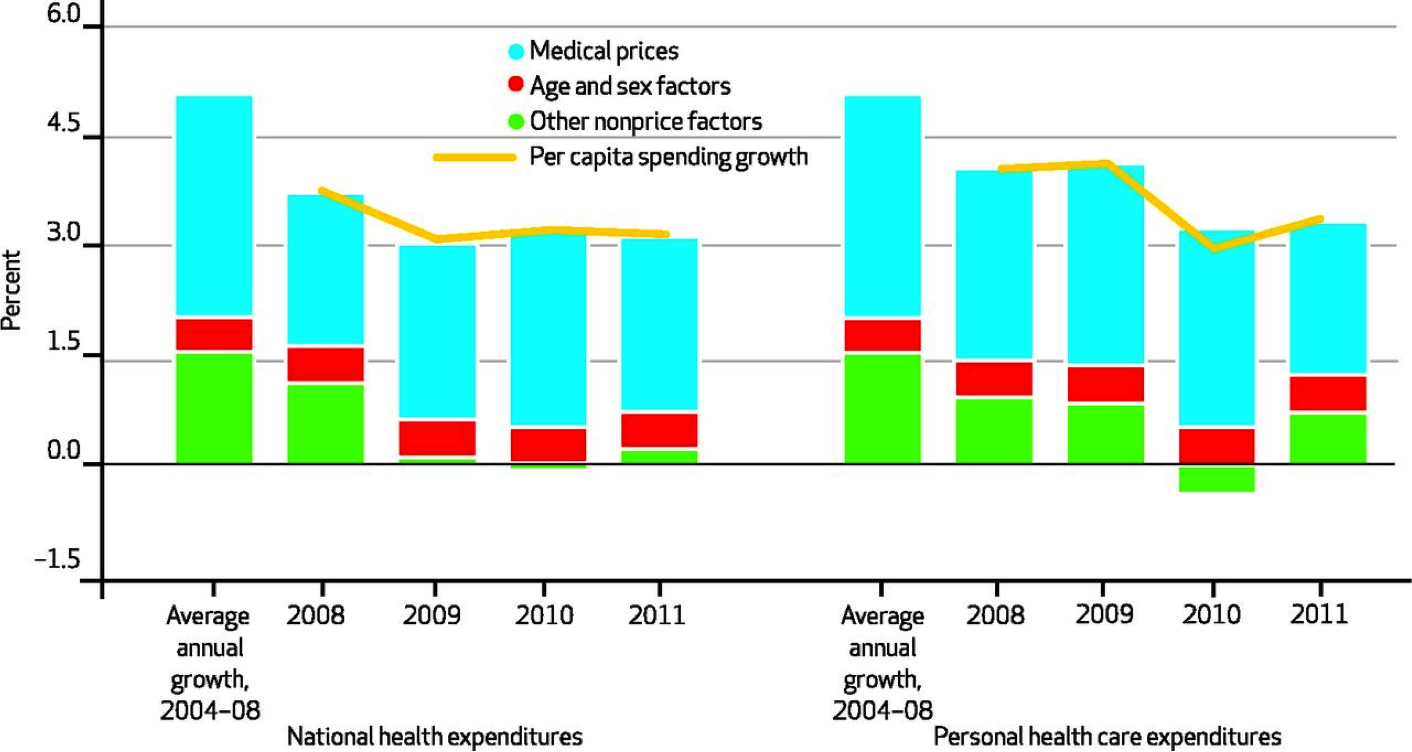Health care spending in America grew by 3.9 percent in 2012—the lowest rate since 1960, when the government began collecting this data. Last year was the third in a row that health care spending grew slower than expected, according to a government study published this week in Health Affairs.
Has America finally started to get a handle on health care spending? It’s possible, but not likely: according to the report, the slowing growth in health care spending is mostly due to the recession. A dive in the number of people enrolled in private health insurance—probably due to job losses—was one of the biggest factors in slowing growth. Between 2007 and 2010, 11.2 million people left private health insurance:

Hartman et. al, Health Affairs, January 2013
Many of these people ended up uninsured—the number of people without health insurance increased by 7 million during that time. Uninsured people, as you might expect, spend less money on health care. Meanwhile, hospital stays, perscriptions, and other services don’t cost any less than they used to. The chart below shows the reasons for growth in individual and national health spending. Note how medical prices are the main factor driving growth, while the effects of an aging population and other “nonprice factors,” namely how much and how often people are using medical services, vary from year to year:
Factors Accounting For Growth in Per Capita National Health Expenditures and Personal Health Care Expenditures

Now that the economy is beginning to recover, health care spending is expected to rebound; the most recent government projections expect it to grow 7.1 percent in 2014, then an average of 6.2 percent annually between 2015 and 2021. Some argue there are signs that health care spending is slowing down in the long run, though it will still be growing as a share of the economy.
The silver lining is Obamacare, which will add to the amount the government spends on health care but is expected to reduce the growth of health spending in the long run. Additionally, more people will be insured, and with better insurance, so (at least in theory) each dollar spent on health care will go further and help more people in need of medical care.









